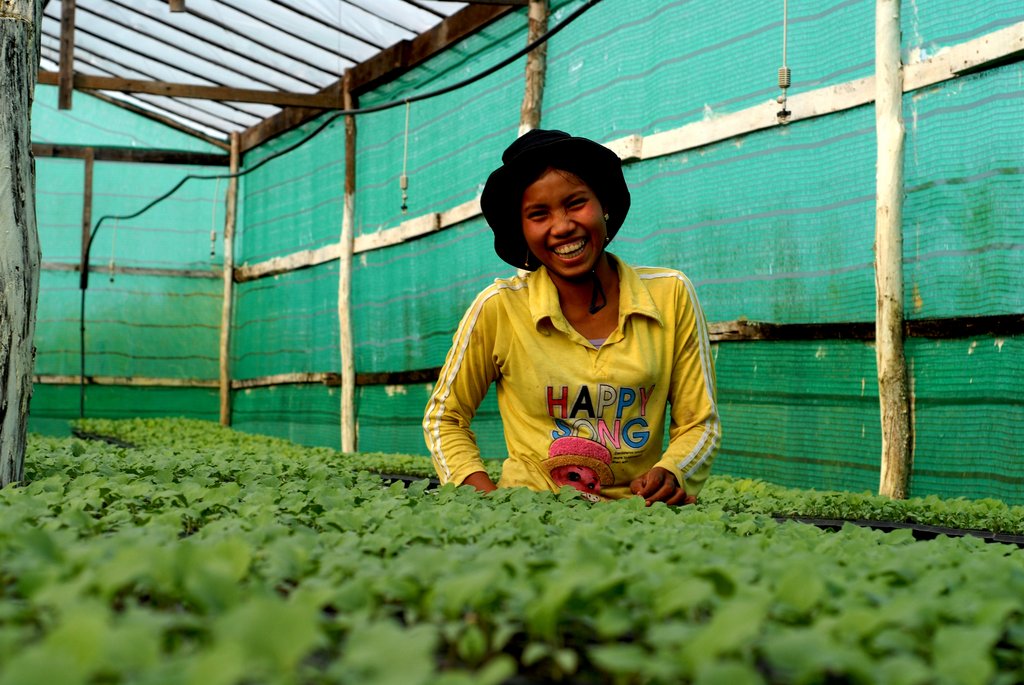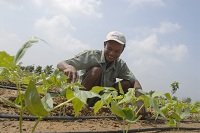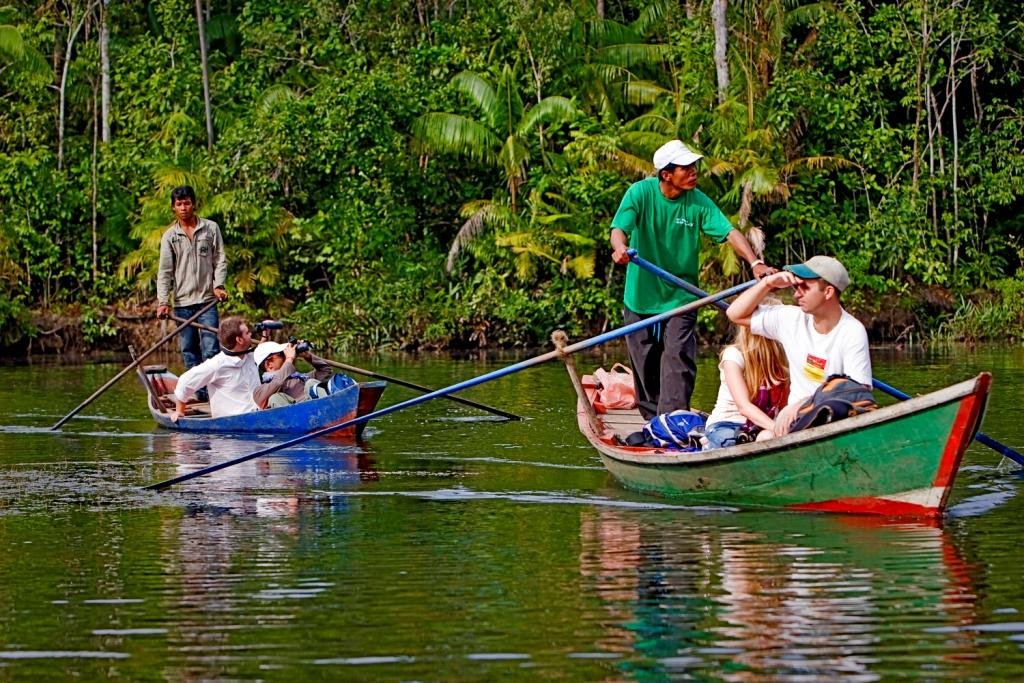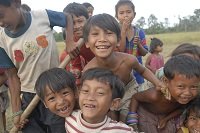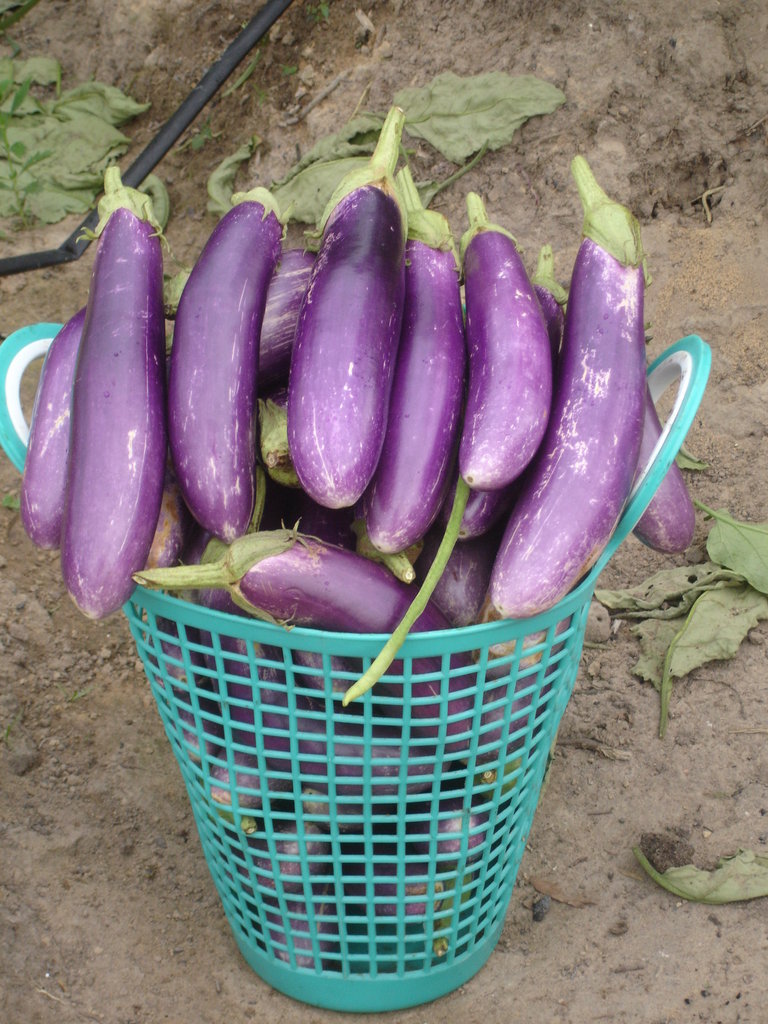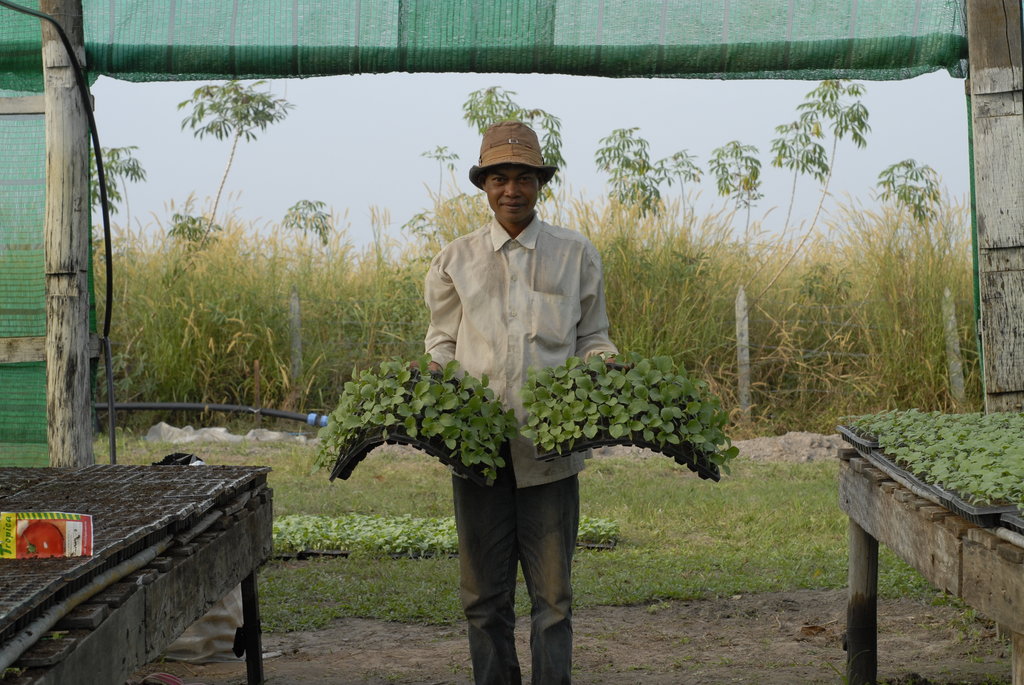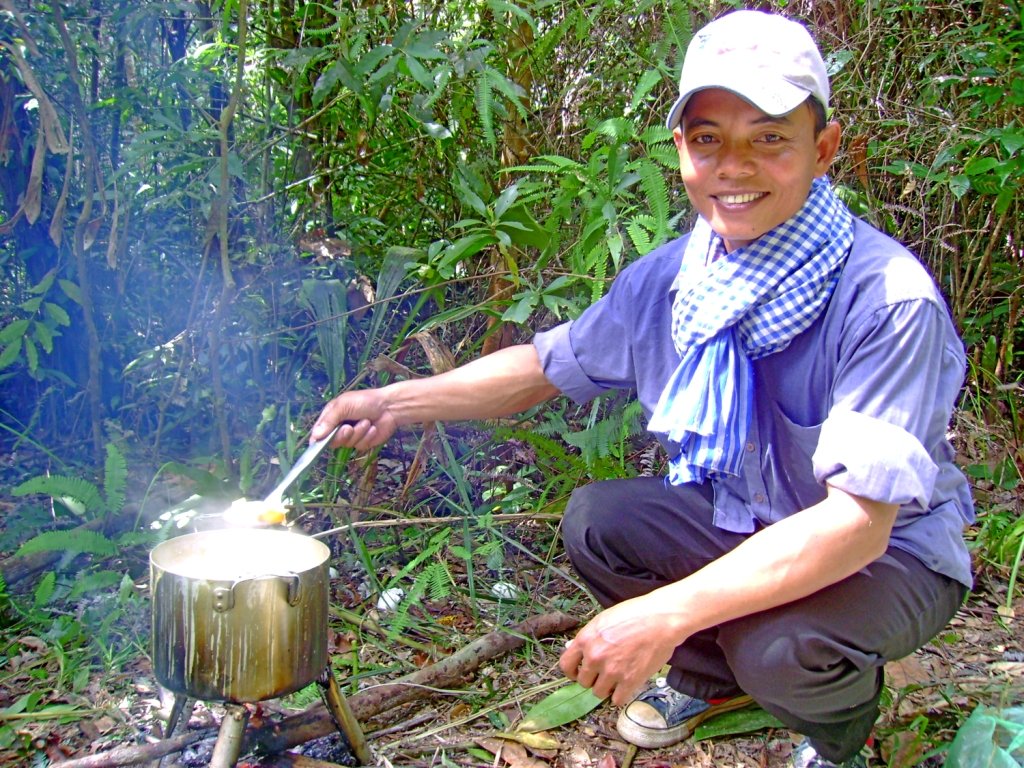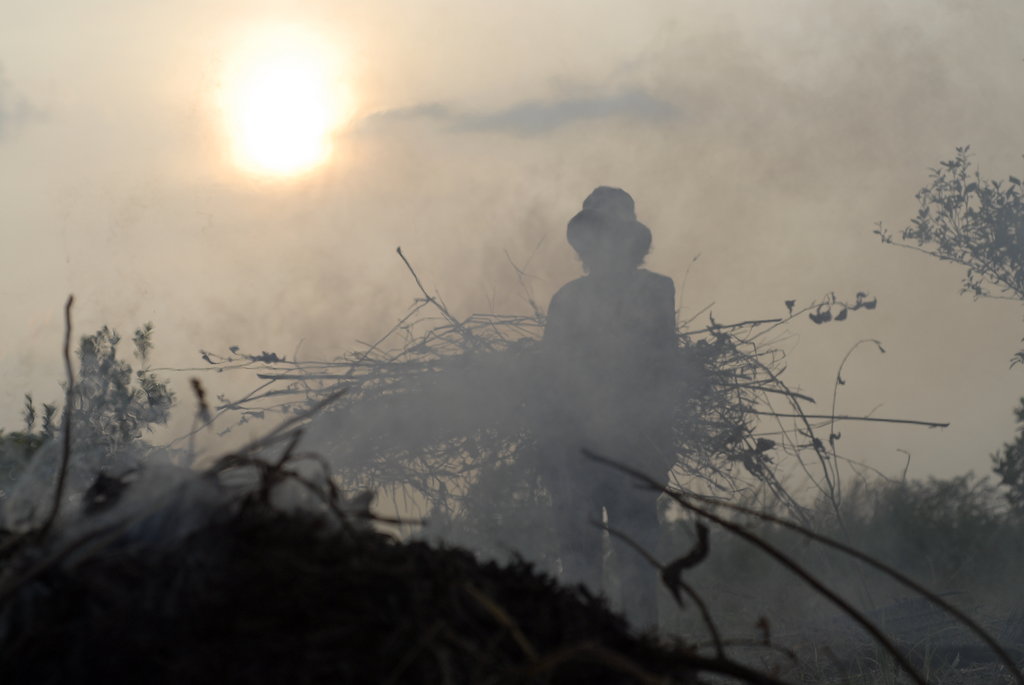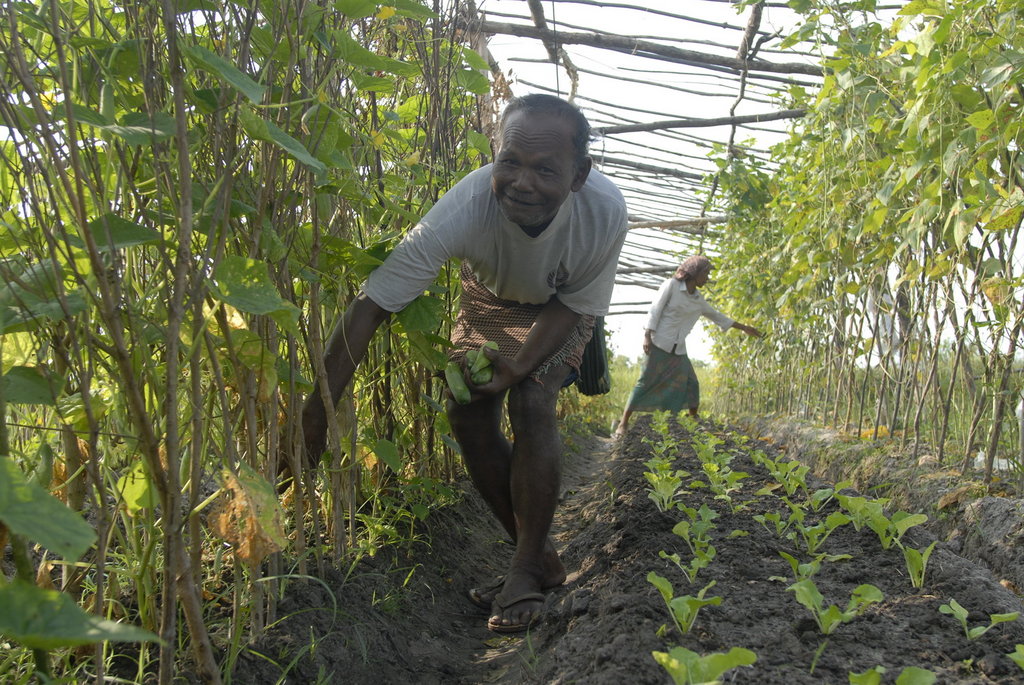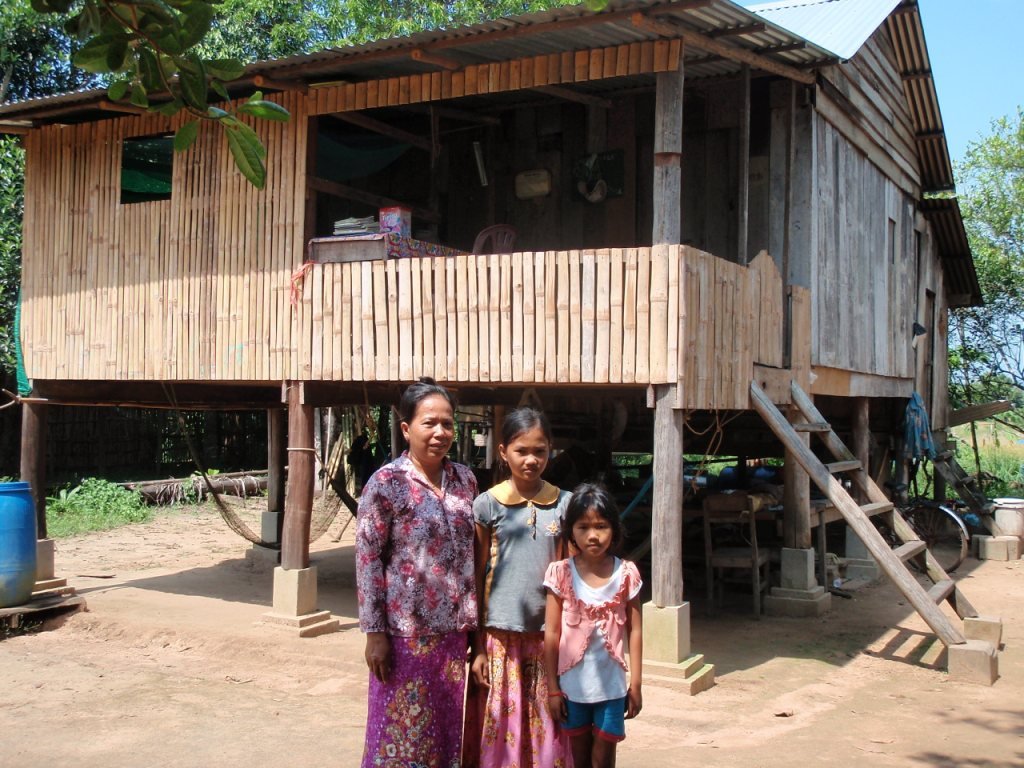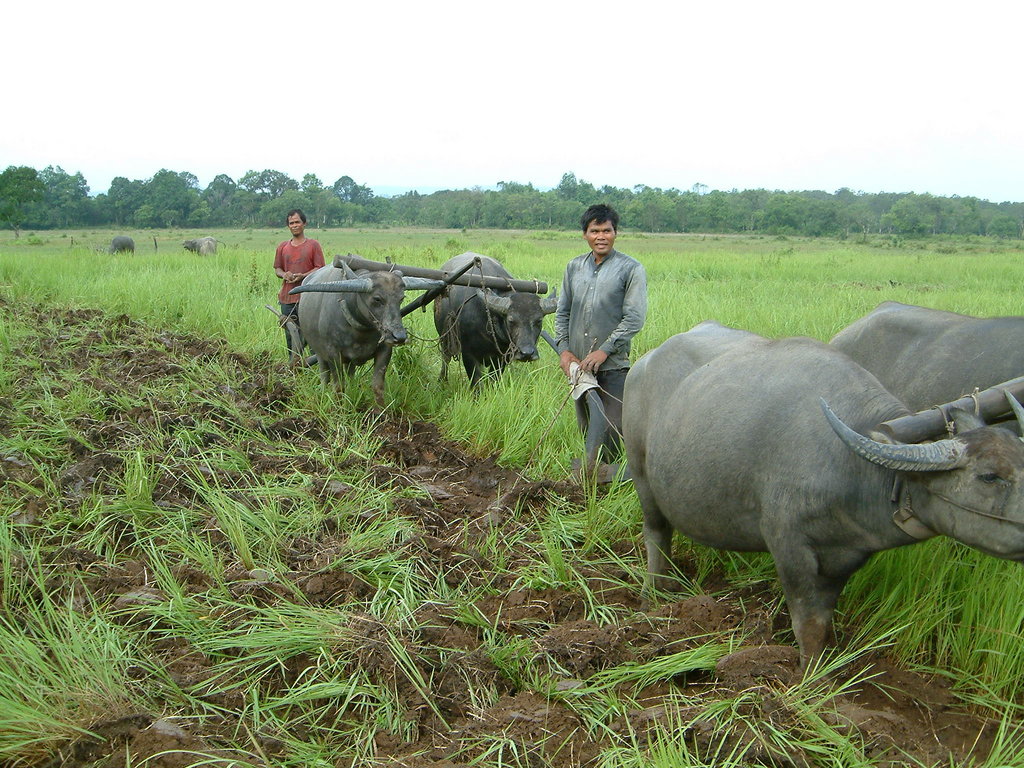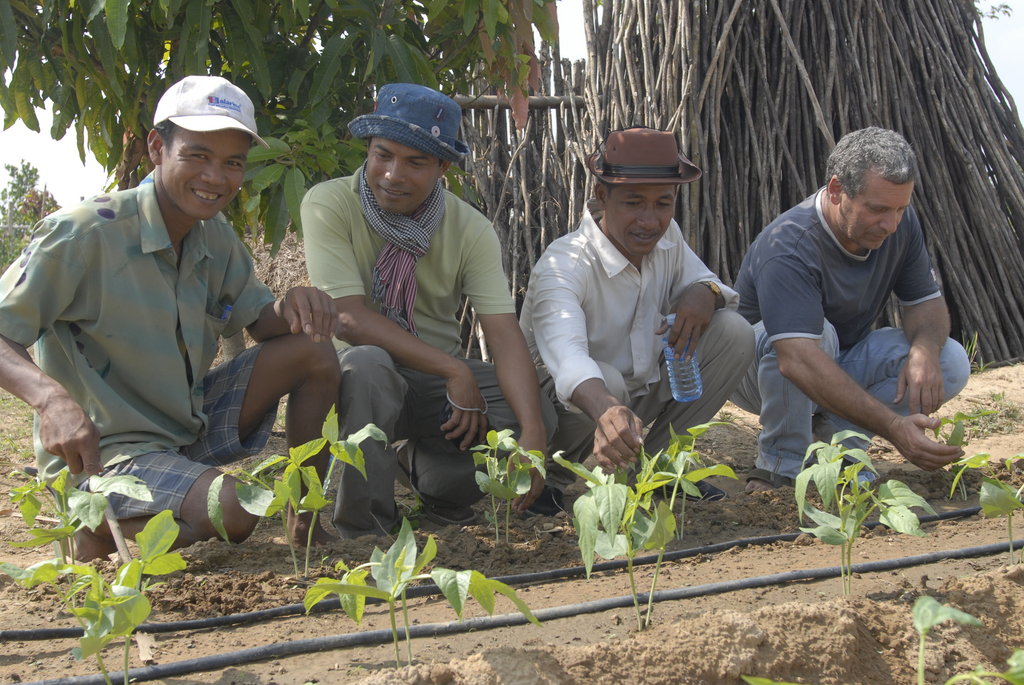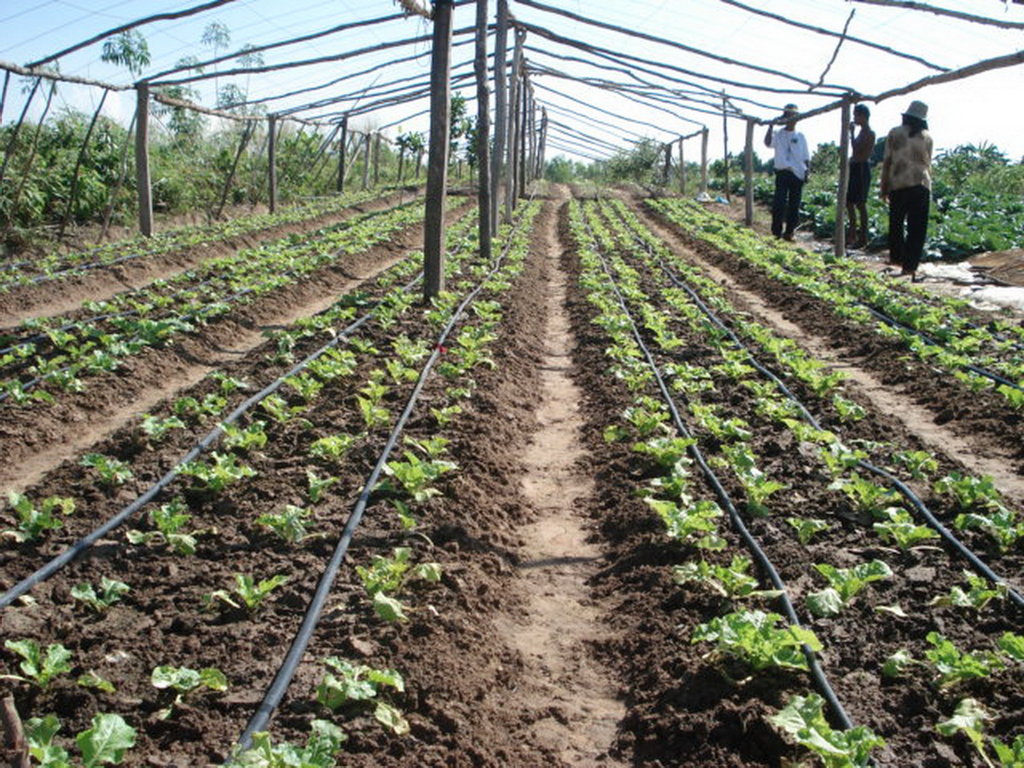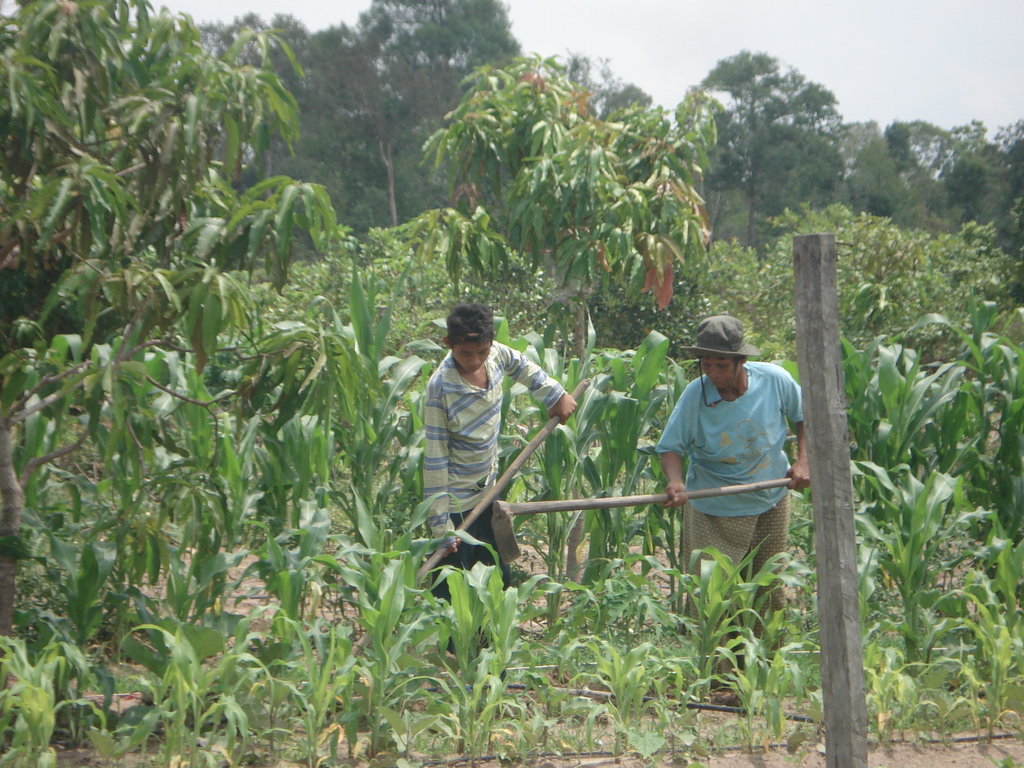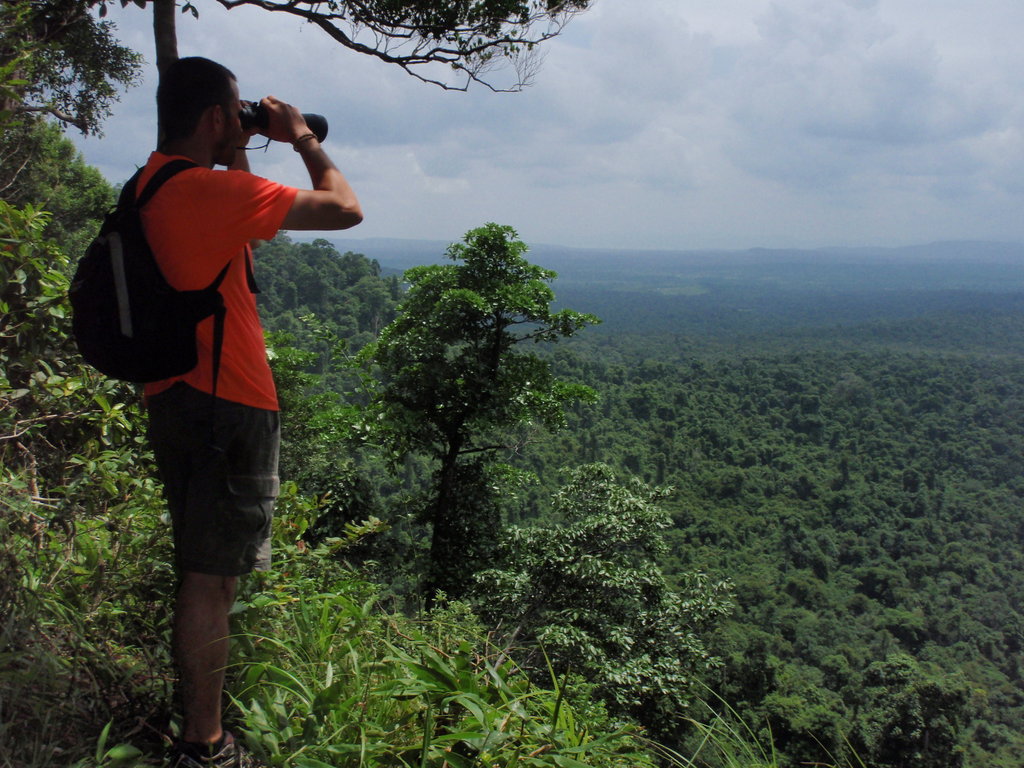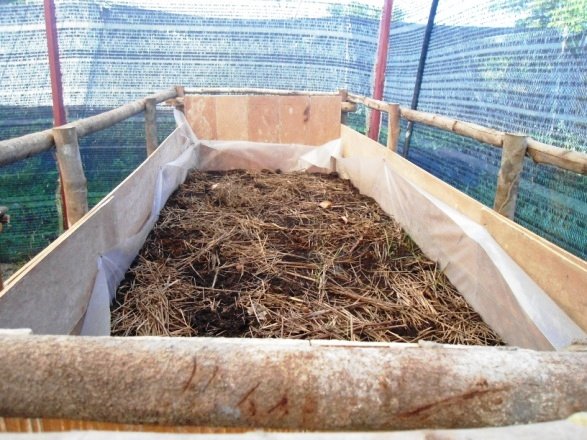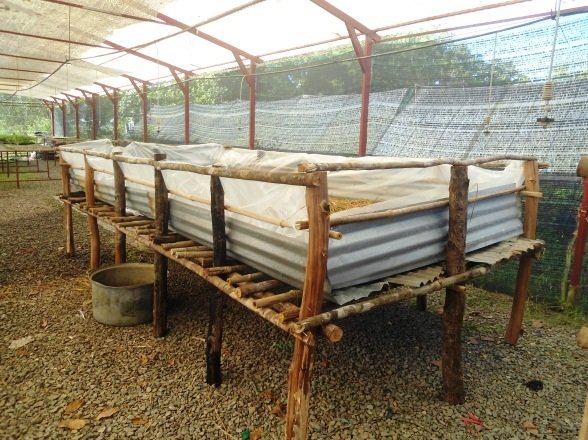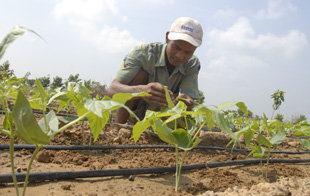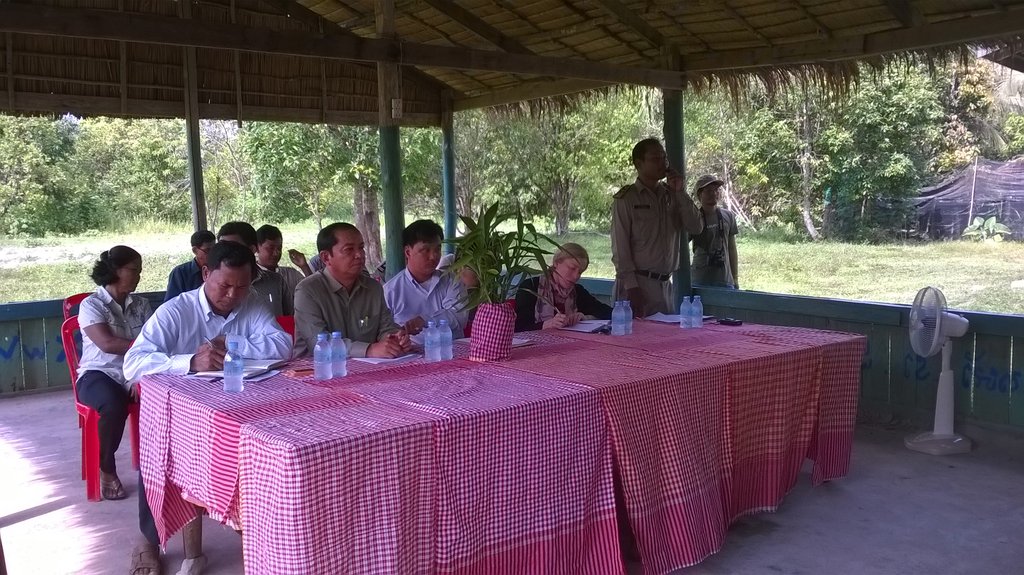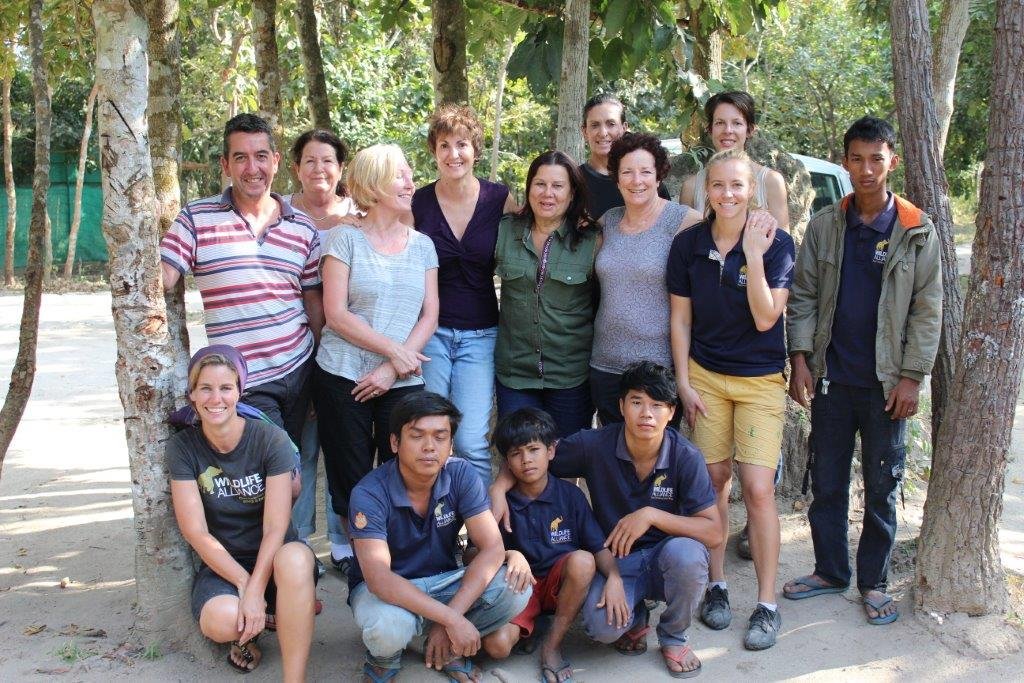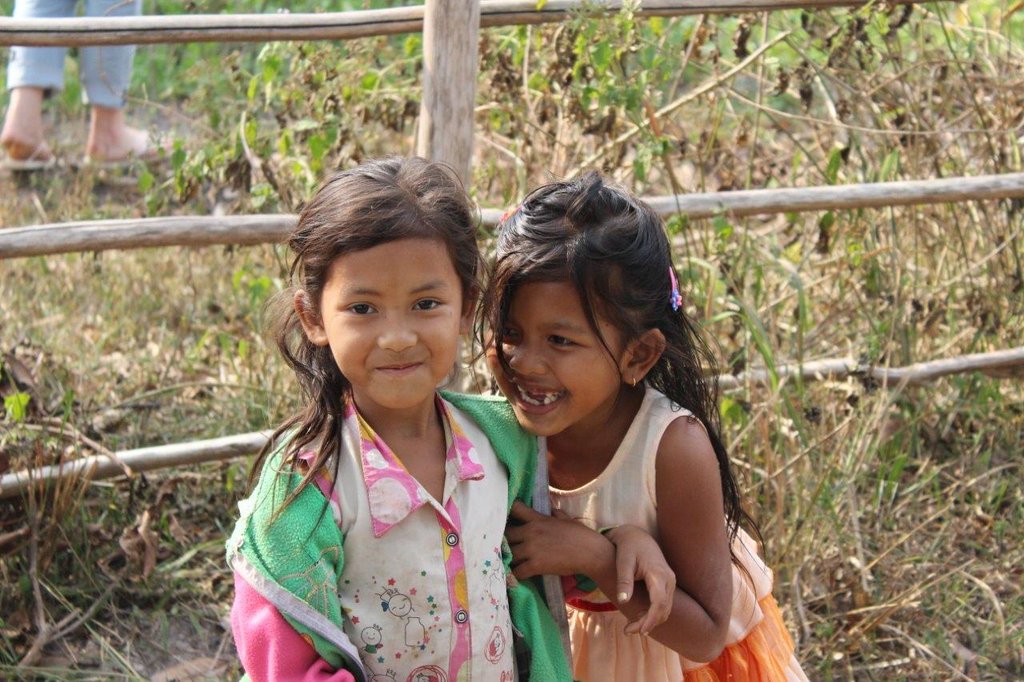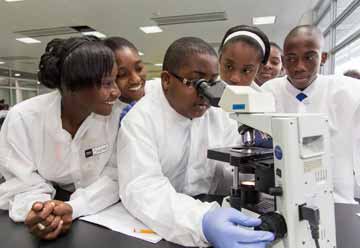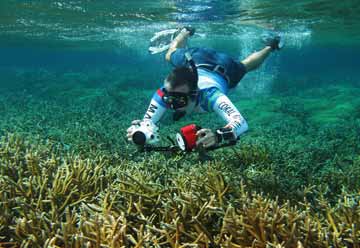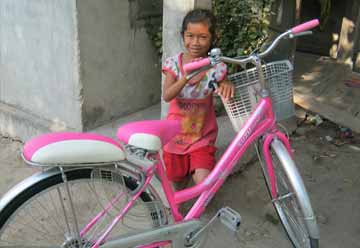Vermicompost: It may not be pretty but it is effective. Another permaculture technique is improving our Community Agriculture Development Program (CADP). Introduced by CADP’s field technician Rattanak, vermicompost, or red worm compost, is now being generated and utilized by community members as an organic fertilizer source for Sovanna Baitong’s family farms.
Vermicompost is achieved by using worms (primarily red worms) to create a heterogeneous compost material made of biodegradable food scraps, bedding materials such as shredded paper or straw and vermicast (what results from the breakdown of other materials by earthworms). Over the course of a few months, the worms ingest the food scraps and bedding materials and excrete highly nutrient-rich castings. Yes, gross. But however squeamish this may make you feel, the end product of vermicompost is extremely beneficial for farmers as a non-toxic, safe, and organic fertilizer and soil conditioner. Vermicompost will enrich the community’s soil, improve farming techniques and yields, and consequently increase income for the families and the community as a whole. Currently, four Sovanna Baitong families are producing the red worm compost with technical assistance from Wildlife Alliance staff. We hope the practice will continue to spread as these improved permaculture efforts, like vermicompost, are resulting in better livelihoods for families living in Sovanna Baitong.
After a year of sustained incomes in 2013, families in Sovanna Baitong are focusing on income growth and diversification in 2014. Implementing permaculture techniques, such as vermicompost and aquaponics, is allowing farmers to take their earnings to the next level. Furthermore, many families have built small enterprises which add to family income while also adding to the vibrancy of the community. Before the initiation of CADP in 2004, many of the farmers currently living in Sovanna Baitong were using slash and burn methods to farm and support their families wreaking havoc on the ecosystem. Beholden to the monsoon seasons and crippled by poor soil quality, this meant income was minimal and unstable. Now that families have the tools to ensure steady incomes, the community is moving towards financial sustainability through the incorporation of permaculture and the building of small enterprises. Wildlife Alliance and its staff of community developers and agronomists will continue to provide technical assistance to the families in Sovanna Baitong, helping them create better, more sustainable farming habits and small businesses. Agricultural improvements in permaculture, like vermicompost (yes, the worms again), are having a huge impact in helping community members live sustainably and work towards achieving full self-sufficiency in the years to come.






